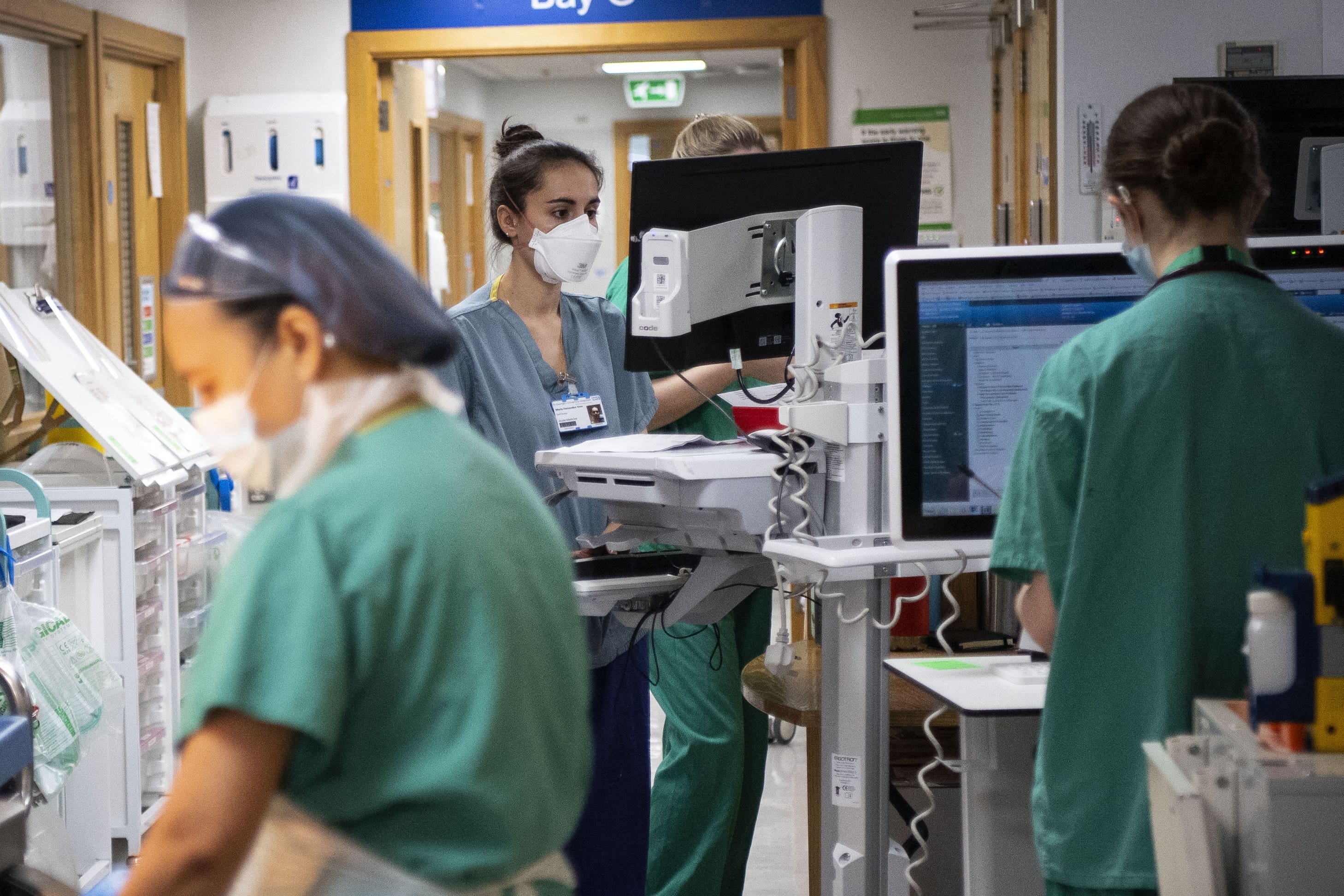Cancer care and maternity services to be hit by nurses’ strike
Radiotherapy and cancer surgery will be hit by the action on 15 and 20 December

Your support helps us to tell the story
From reproductive rights to climate change to Big Tech, The Independent is on the ground when the story is developing. Whether it's investigating the financials of Elon Musk's pro-Trump PAC or producing our latest documentary, 'The A Word', which shines a light on the American women fighting for reproductive rights, we know how important it is to parse out the facts from the messaging.
At such a critical moment in US history, we need reporters on the ground. Your donation allows us to keep sending journalists to speak to both sides of the story.
The Independent is trusted by Americans across the entire political spectrum. And unlike many other quality news outlets, we choose not to lock Americans out of our reporting and analysis with paywalls. We believe quality journalism should be available to everyone, paid for by those who can afford it.
Your support makes all the difference.Cancer treatments will be among the NHS services badly hit when nurses go on strike for two days before Christmas.
The Royal College of Nursing has set out a list of areas protected from the walkout, including chemotherapy, critical care, kidney dialysis, paediatric intensive care and neonatal services.
All other services will be reduced to levels normally found on Christmas day or night.
It means radiotherapy, cancer surgery and maternity services will all be hit when RCN members in England, Wales and Northern Ireland take industrial action on 15 December and 20 December.
Separately, ambulance services across England are set to go on strike before Christmas, though the exact date for action has yet to be announced.
Nurses and other nursing staff will take action at half of the locations in England where the legal mandate was reached for strikes, every NHS employer except one in Wales and throughout Northern Ireland. The strike will include up to 100,000 nurses. A separate pay offer has been made in Scotland.
RCN general secretary and chief executive Pat Cullen said that the list of exemptions shows how seriously nurses take their commitment to their jobs.
“Every nurse feels a heavy weight of responsibility to make this strike safe. Patients are already at great risk and we will not add to it,” she said.
“This list of exemptions shows how seriously we take our commitment and it should put patients’ minds at ease.
“Nursing staff do not want to take this action but ministers have chosen strikes over negotiations. They can stop this at any point.”
The RCN has previously said that despite this year’s pay award of £1,400, experienced nurses are worse off by 20 per cent in real terms due to successive below-inflation awards since 2010.
It is calling for a pay rise of 5 per cent above RPI inflation, saying the economic argument for paying nursing staff fairly is clear when billions of pounds are being spent on agency staff to plug workforce gaps.
The RCN has also pointed out that 25,000 nursing staff around the UK left the Nursing and Midwifery Council register in the last year, which explains why there are 47,000 unfilled registered nurse posts in the NHS in England.


